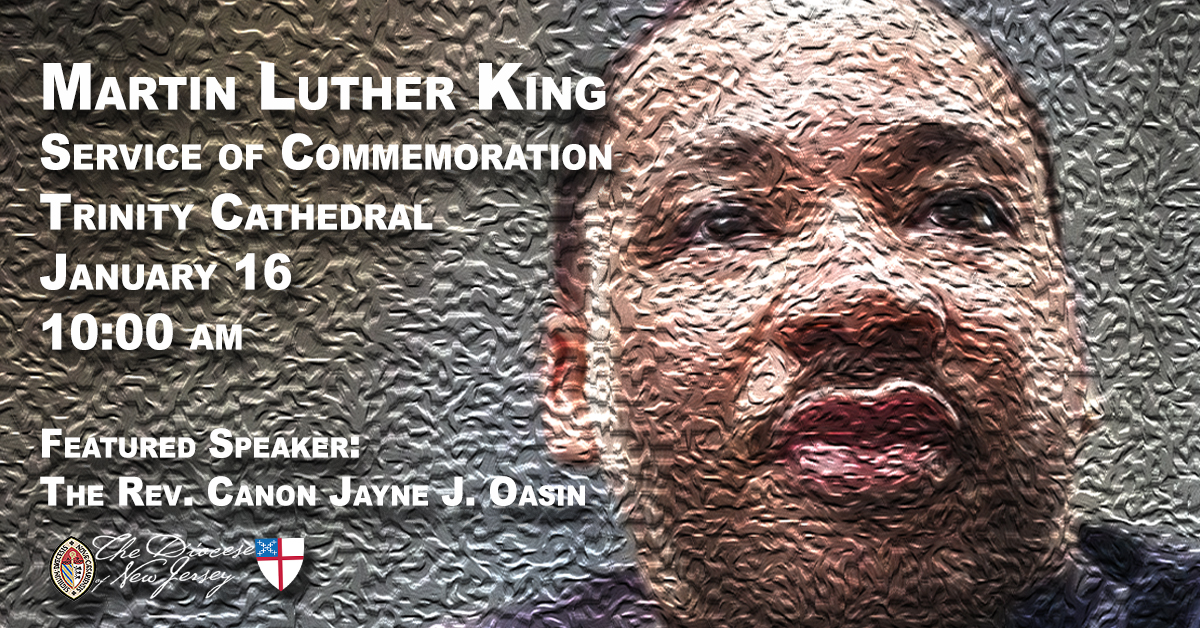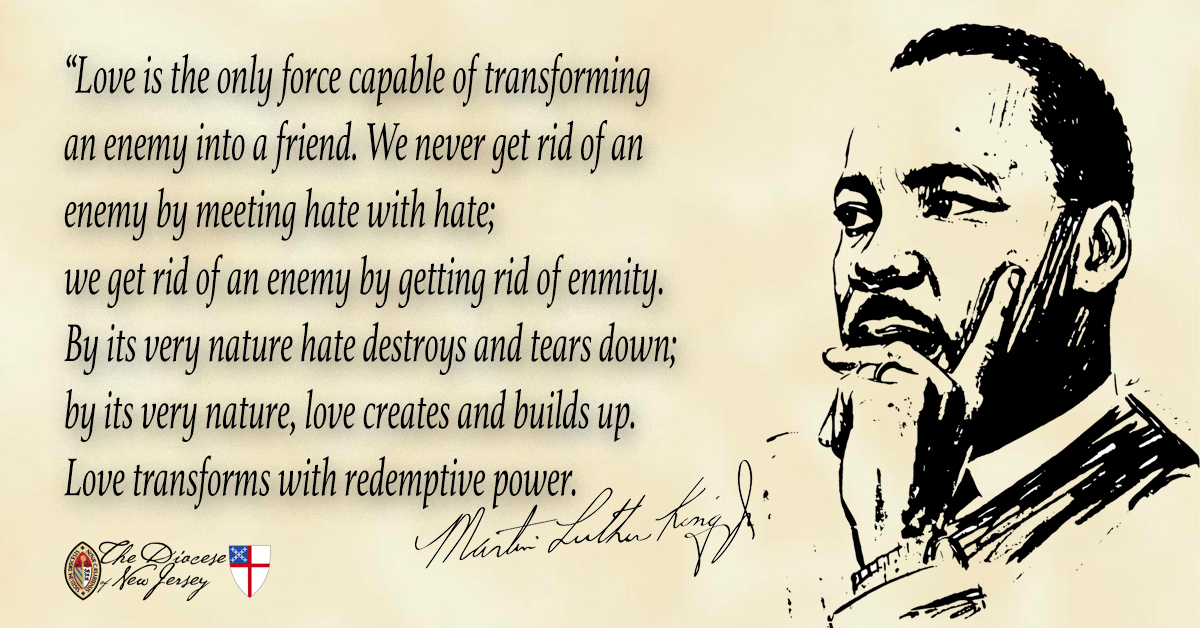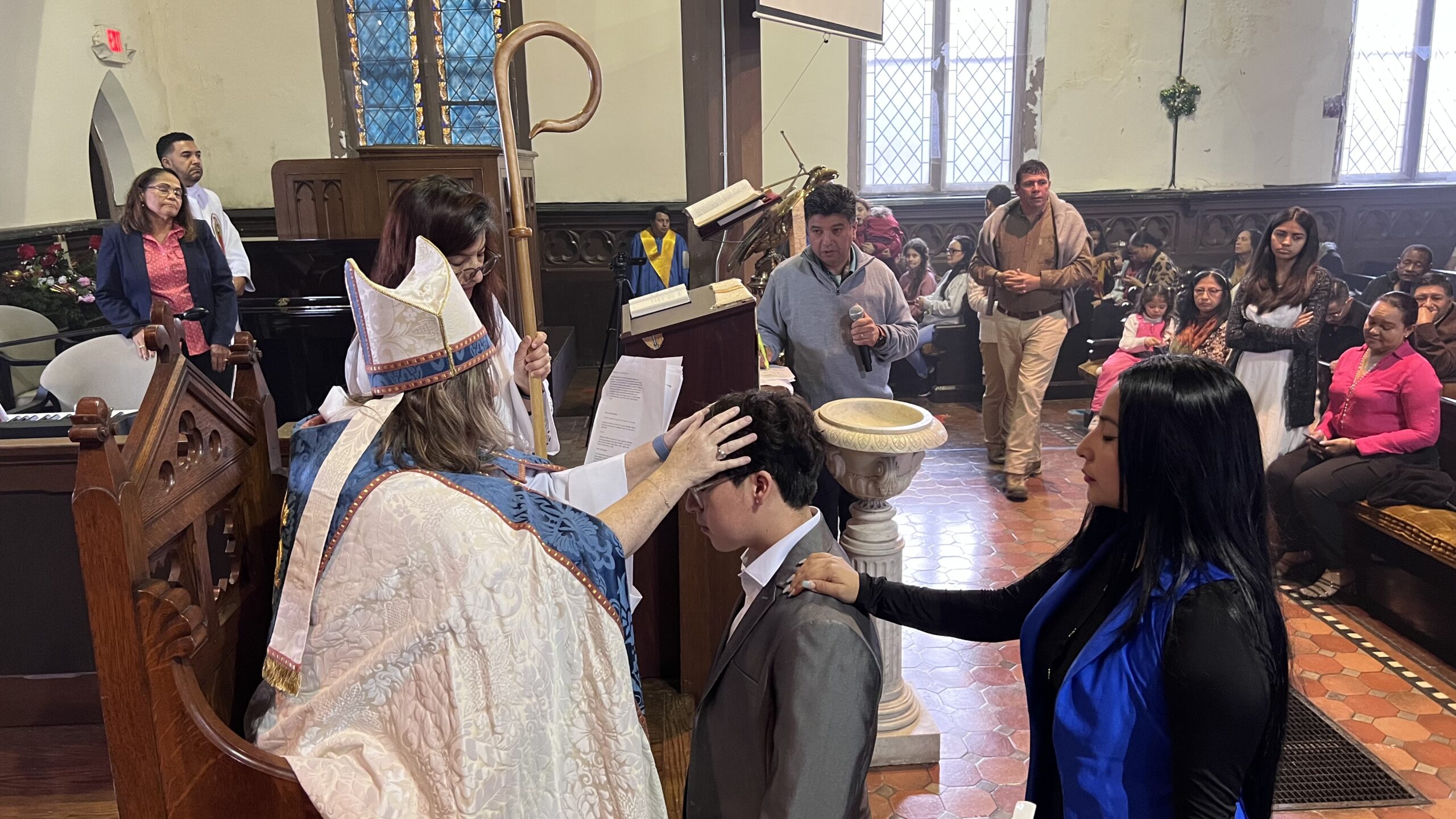
Dear People and Friends of the Diocese of New Jersey,
“Plus ça change, plus c’est la même chose”—the more things change, the more they remain the same. These words are attributed to French writer Jean-Baptiste Alphonse Karr (d. 1890.)[1] I couldn’t help thinking of them as I reread the Rev. Dr. Martin Luther King Jr.’s sermon “Loving Your Enemies,” which he preached at Dexter Avenue Baptist Church, Montgomery, Alabama in Christmas of 1957.[2] It’s an incredible sermon and a profound teaching on the power of love.
What caused me to think of Karr’s famous proverb was Dr. King’s observation in that 1957 sermon that, “Upheaval after upheaval has reminded us that modern man is traveling along a road called hate, in a journey that will bring us to destruction and damnation.”[3] There was certainly a great deal of upheaval going on when Dr. King preached those words.
In February of 1957, Dr. King and others had just formed the Southern Christian Leadership Conference. It was needed. Earlier in February, the Georgia Senate had declared the 14th and 15th Amendments to the U.S. Constitution null and void. In April, the Florida Senate voted to consider the United States Supreme Court’s decisions on segregation null and void. In May of 1957, a large demonstration took place in Washington, D.C., during which Dr. King delivered his renowned Give us the ballot speech. Early in September, as schools in Little Rock, Arkansas were preparing for a new school year, Governor Orval Fabus called out the Arkansas National Guard to prevent integration of Little Rock Central High School. A few days later, President Eisenhower would federalize those troops to enforce the Supreme Court’s decision. Soon after, President Eisenhower would sign the Civil Rights Act of 1957. In October, the Florida Legislature voted to close any of its schools if federal troops were sent in to integrate them. Texas followed suit in November.[4]
Florida and Texas…
“Plus ça change, plus c’est la même chose”—the more things change, the more they remain the same.
Today, as we prepare to observe Martin Luther King Jr. Day in this country, we continue to live in a world of upheavals with rampant, unashamed, defiant, hatred being spewed in many directions. New Jersey is not immune. In December, New Jersey Monthly magazine reported, “New Jersey Has Shockingly Become a Case Study for Hate Crimes.”[5] How are we to respond?
“Plus ça change, plus c’est la même chose”—the more things change, the more they remain the same.
 Dr. King’s answer that Christmas of 1957 is still the same answer and the right answer: Love.
Dr. King’s answer that Christmas of 1957 is still the same answer and the right answer: Love.
With insight and wisdom born of experience, he said,
“Far from being the pious injunction of a Utopian dreamer, the command to love one’s enemies is an absolute necessity for our survival. Love even for enemies is the key to the solution of the problems of our world. Jesus is not an impractical idealist; he is the practical realist.”[6]
Later in this powerful 1957 Christmas sermon, Dr. King preaches:
…love is the only force capable of transforming an enemy into a friend. We never get rid of an enemy by meeting hate with hate; we get rid of an enemy by getting rid of enmity. By its very nature hate destroys and tears down; by its very nature, love creates and builds up. Love transforms with redemptive power.[7]
“Plus ça change, plus c’est la même chose”—the more things change, the more they remain the same.
On Monday, January 16 at 10:00 a.m., the Diocese of New Jersey will hold its annual Reverend Dr. Martin Luther King, Jr. Service. Our preacher will be the Rev. Canon Jayne J. Oasin, for many years Social Justice Officer of The Episcopal Church. I urge all to come out and celebrate Dr. King’s legacy together. I urge all to come out in the name of love.
Blessings and peace in Christ,

The Right Reverend William H. Stokes
Bishop of New Jersey
_____________________
Notes
[1] See Jean-Baptiste Alphonse Karr – Wikipedia
[2] King, Jr., Martin Luther “Loving Your Enemies”—From a pamphlet that is part of the A.J. Muste Memorial Institute Essay Series—New York—see A.J. Muste Memorial Institute | For Nonviolence and Social Justice (ajmuste.org)
[3] King, p. 3
[4] See Timeline of the civil rights movement – Wikipedia
[5] Pillets, Jeff “New Jersey Has Shockingly Become a Case Study for Hate Crimes”—New Jersey Monthly Magazine website December 29, 2022 found at NJ: A Shocking Case Study for Hate Crimes | New Jersey Monthly (njmonthly.com)
[6] King, p. 3-4
[7] King, p.8










